10 Forgotten American Superstitions And 5 Rare Ones You May Not Know
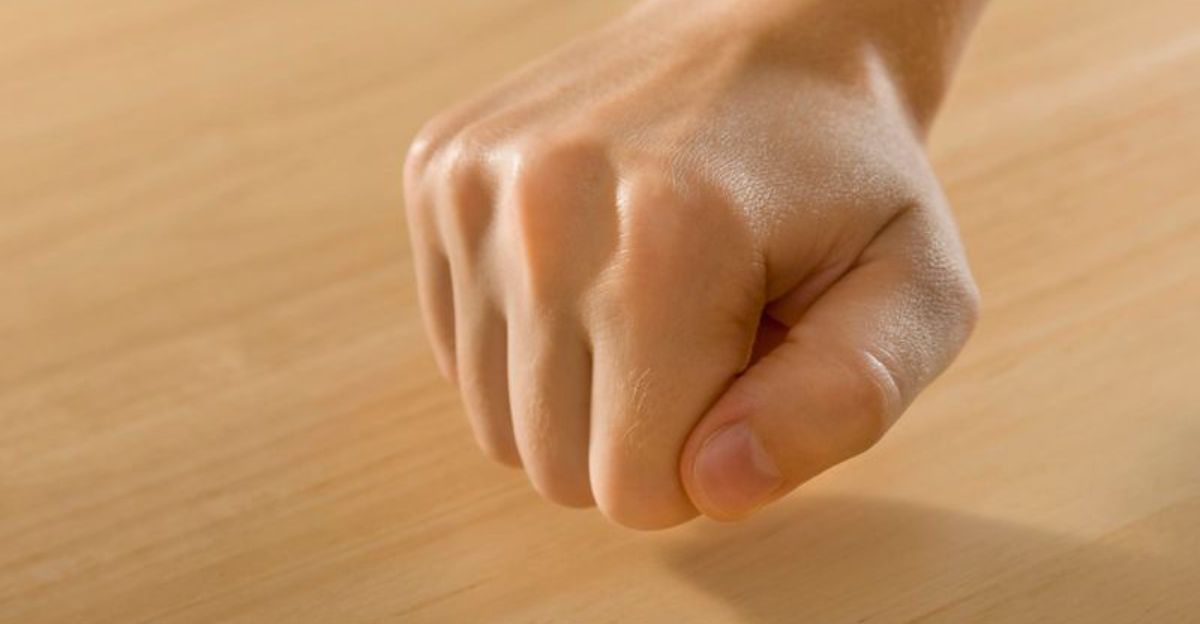
Step right up and knock on wood—because we’re diving into the world of old-school American superstitions! Once upon a time, these quirky beliefs ruled daily life, influencing everything from wedding dates to where you put your shoes at night (hint: never on the table—unless you want bad luck).
Some superstitions have stood the test of time—like avoiding black cats and never opening an umbrella indoors—but others have quietly faded into obscurity. Ever heard of tossing salt over your left shoulder to blind the devil?
Or how about the rule that dropping a fork means unexpected company is coming? (Hopefully, someone bringing snacks.) And let’s not forget the fear of stepping on cracks, lest you doom your poor mother’s spine.
Join us on a nostalgic, laugh-filled journey through 15 long-lost superstitions that once had Americans cautiously tiptoeing through life—because hey, better safe than superstitiously sorry!
1. Dropping a Dishcloth Means Company Is Coming
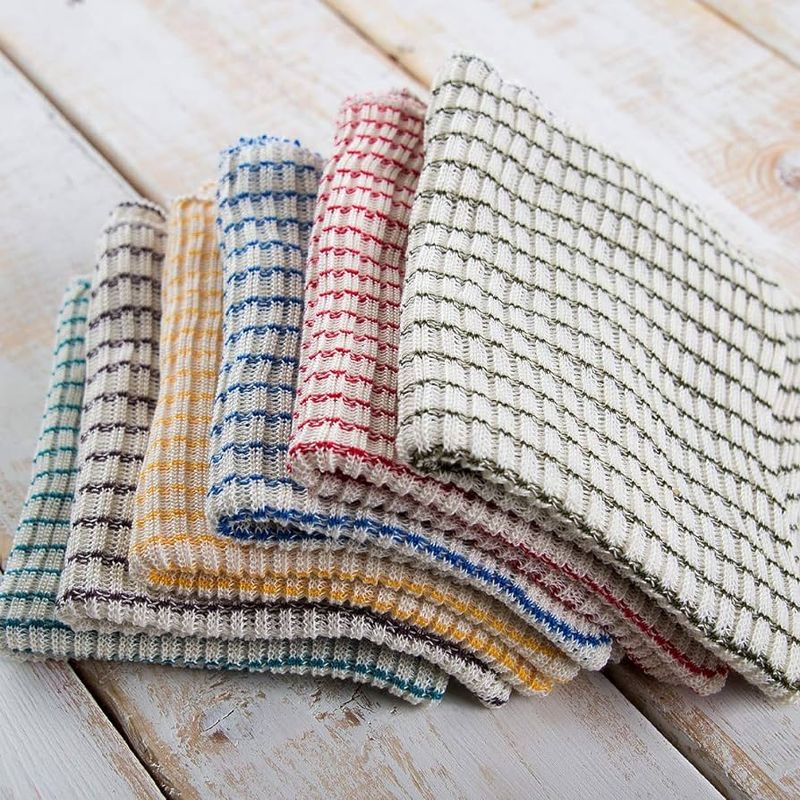
Once upon a spilled dishcloth, Americans believed that dropping this humble piece of fabric meant an unexpected visitor was about to knock on your door.
This superstition, a curious blend of domestic bliss and mystery, added a sprinkle of excitement to the mundane task of kitchen cleaning. Whether it was the nosy neighbor or a long-lost friend, the dishcloth’s accidental fall heralded social surprises.
For those hoping for pleasant company, perhaps the dishcloth was intentionally nudged over the edge. But beware, not every visitor was a delight! Superstitious households often kept their dishcloths firmly in hand, lest they invite unwanted guests. This belief served as a reminder of the unpredictable nature of life, where even the simplest actions could alter one’s social landscape. So, the next time you drop a dishcloth, brace yourself for a visitor—or maybe just a funny memory.
2. Don’t Put New Shoes on the Table

In an age where shoes told tales, placing new ones on a table was akin to tempting fate. This curious superstition suggested that such an act could invite bad luck or even death! A shoe on a table wasn’t just about poor etiquette; it was a harbinger of doom, sending shivers down spines.
The origins of this belief are as mysterious as the superstition itself. Perhaps it was a way to encourage respect for new possessions or a warning to keep footwear away from food surfaces. Whatever the reason, the superstition held its ground, influencing behavior in households across America.
Those daring enough to challenge the superstition risked more than just a scolding. They faced the wrath of ancient beliefs, leaving many to wonder if a simple mistake could indeed summon misfortune. So, keep those new shoes grounded, lest they walk you into bad luck.
3. If Your Right Ear Is Burning, Someone’s Talking About You

When your ear burns, it’s not just the sun playing tricks. In American folklore, a burning right ear meant someone was singing your praises, while the left suggested gossip was afoot. This peculiar belief turned ears into social barometers, offering clues about unseen conversations.
Caught in the silent chatter, people couldn’t help but wonder who might be discussing them. A burning sensation became a prompt for introspection and speculation. Was it a secret admirer or a critic? The belief turned ordinary moments into thrilling mysteries, keeping imaginations alive.
Though science might dismiss ear burning as mere blood flow, this superstition offered a whimsical explanation. It was a reminder of human curiosity and the desire to connect with the unseen forces of social dynamics. So, next time your ear tingles, enjoy the intrigue, and maybe even start a rumor of your own!
4. It’s Bad Luck to Sweep Dirt Out the Front Door
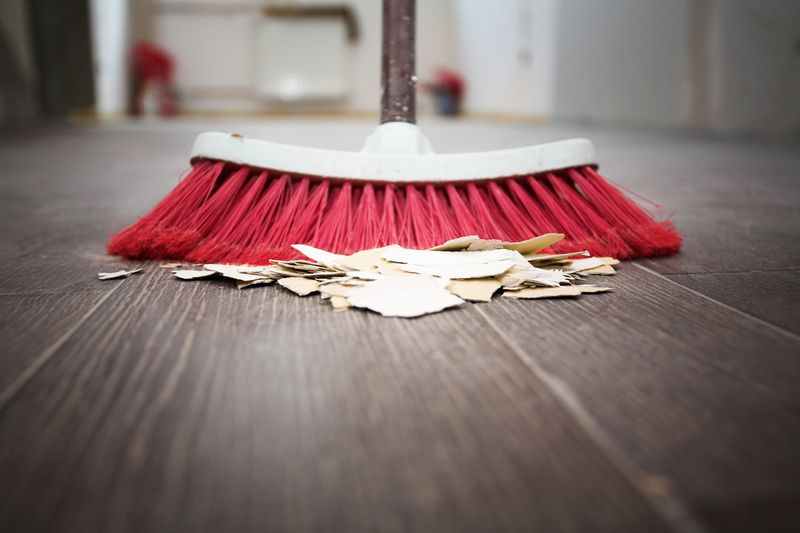
Home cleaning took a superstitious turn with the belief that sweeping dirt out the front door whisked away one’s luck and prosperity. This rule of housekeeping made sweeping a strategic affair, as people aimed to keep good fortune firmly indoors.
It wasn’t just about dirt management; it was about preserving the household’s wealth and happiness. Sweeping toward the back of the house became the norm, allowing residents to metaphorically hold onto their fortunes. This superstition turned cleaning into a ritual of abundance, where every sweep carried significance.
For the superstitious, the act of sweeping was about more than removing dust. It was a dance with destiny, a careful calculation of how luck would flow through their lives. So, before you grab your broom, think twice: where your dirt goes, your fortune may follow.
5. A Ring Around the Moon Means Bad Weather Is Coming

When night skies revealed a moon with a halo, ancient Americans saw more than celestial beauty; they saw a weather forecast. A ring around the moon was an omen, predicting storms and urging preparations for the elements.
This lunar phenomenon, caused by ice crystals in the atmosphere, became a tool for early meteorologists. It connected people with the skies, blending science with superstition, and keeping communities alert to natural changes.
For those who noticed the halo, it was time to gather supplies and secure the homestead. The moon’s ring was a guardian of sorts, a visual alarm system that guided survival strategies. While modern technology has replaced such signs, the superstition remains a poetic nod to the wisdom of watching the skies. Next time you see a ring around the moon, consider it a whisper from the past, urging you to prepare.
6. If You Sing Before Breakfast, You’ll Cry Before Supper

Morning melodies were once shrouded in cautionary tales, where singing before breakfast promised tears by supper. This superstition cast shadows over cheerful morning routines, urging silence until the first bite.
Perhaps it was a clever ploy by parents seeking a quieter morning, or maybe it warned against misplaced joy. Whatever the origin, singing at dawn was a risky business, fraught with emotional consequences.
The belief turned kitchens into silent spaces, where the promise of tears kept voices hushed. Yet, for those daring enough to break into song, it was an act of rebellion against the superstitions of old. So, whether you hum or hold your peace, remember that each note could set the tone for your day. Maybe just save the singing for lunch, to keep your eyes dry!
7. Counting Crows Predicts Your Future
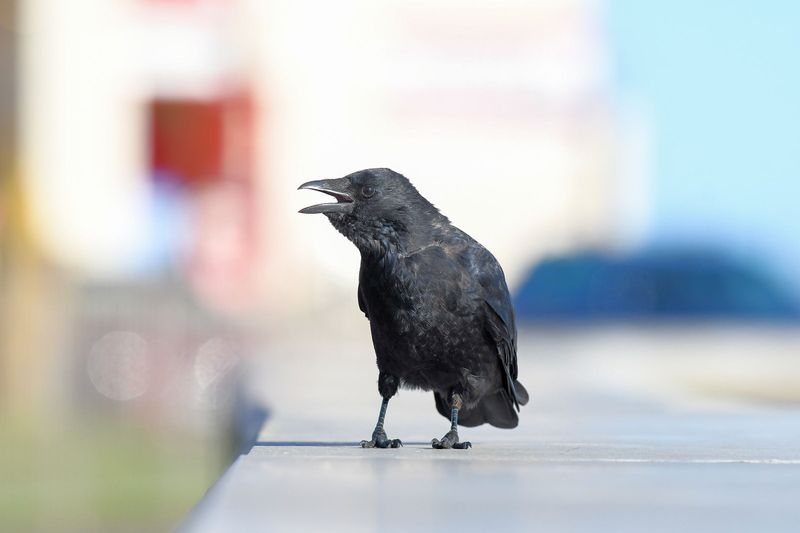
Counting crows wasn’t just about admiring nature; it was a glimpse into fate. One crow spelled trouble, two signaled joy, three hinted at weddings, while a flock warned of disaster. This ornithological oracle turned everyday birdwatching into prophetic practice.
The number of crows dictated emotions, influencing moods and decisions. It was a dance with destiny where feathers foretold futures. For the superstitious, counting birds became a ritual, a way to prepare for what life might throw their way.
Though modern science might question the crow’s role as a seer, this belief kept eyes on the skies and hearts open to possibilities. So next time you see a crow, pause and count carefully. Their numbers might just whisper secrets of what’s to come. It’s all for a lark—or a crow!
8. Never Rock an Empty Rocking Chair
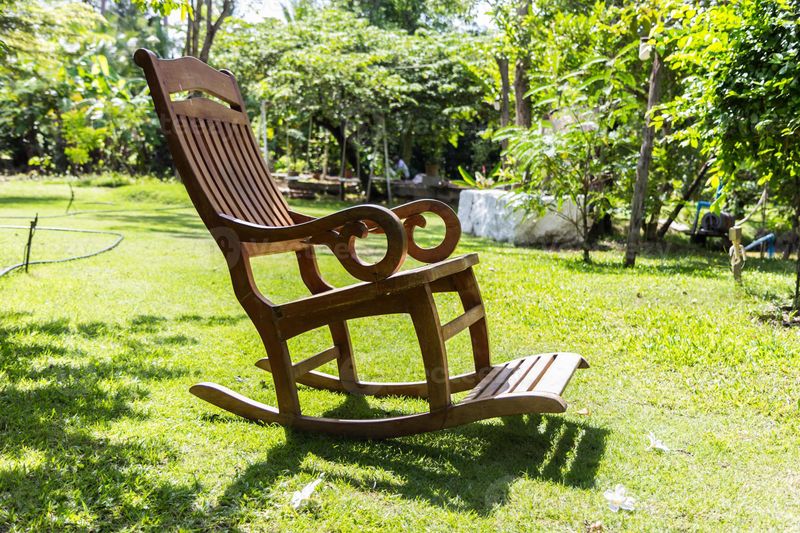
Rocking chairs without occupants were more than just furniture; they were invitations to spirits or bad luck. In American superstition, an empty rocking chair in motion beckoned the supernatural, a ghostly seat waiting for company.
Perhaps it was the eerie sight of an empty chair swaying that fueled this belief. Or maybe it was a reminder to respect the unseen world. Regardless, rocking chairs became thresholds between dimensions, avoided by those wary of unwelcome guests.
This superstition urged caution in the simple act of rocking, reminding people of the thin veil between the living and the ethereal. For some, it was a playful nod to the mysteries of existence; for others, a real warning. So, if you see an empty rocking chair moving on its own, it might be wise to let it settle before taking a seat yourself.
9. Cutting Your Hair on a Full Moon Helps It Grow Faster

Folks once believed that the full moon had magical powers, including the ability to enhance hair growth. Haircuts taken under its glowing light were thought to yield thicker, faster-growing locks, making lunar cycles a stylist’s secret weapon.
This belief tied the personal ritual of haircuts to the cosmic dance of the moon, turning salons into sanctuaries of superstition. Those seeking luscious locks planned their trims by lunar charts, hoping the moon’s influence would outshine mere genetics.
While science might chalk up hair growth to biology, the superstition persists as a charming blend of celestial whimsy and vanity. It connects personal care with the grandeur of the universe, making each haircut a small celebration of lunar magic. Next time you’re due for a trim, check the moon phase—it might just be the key to your hair goals.
10. Knocking on Wood Actually Wards Off Evil
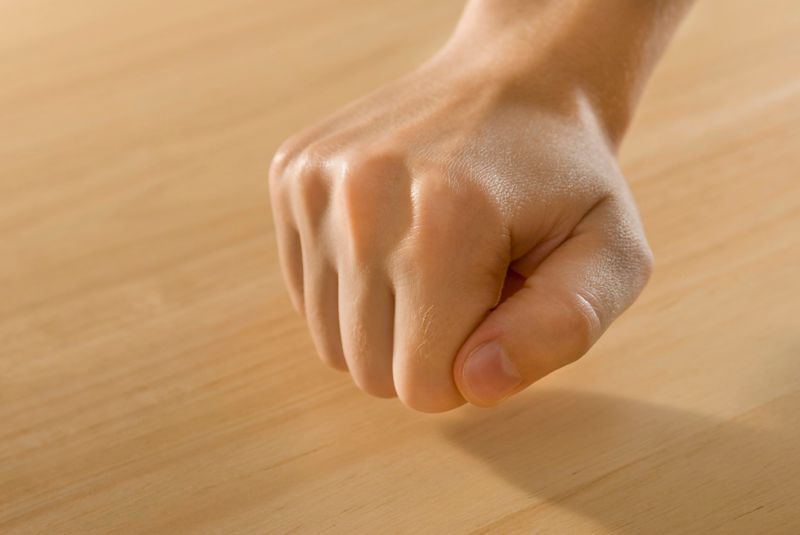
The phrase “knock on wood” goes beyond casual conversation; it’s a ritual steeped in ancient belief. Americans once believed that wood, home to protective spirits, could ward off bad luck and evil when knocked upon after speaking of good fortune.
This act transformed everyday wood into a powerful talisman, a safeguard against tempting fate. It was a gentle reminder of humility, a way to honor the unseen forces that might hear our boasts.
Knocking on wood connected people to nature and its mystical inhabitants, bridging the gap between human hopes and spiritual guardianship. While modern skeptics might smile at the simplicity, the superstition remains a charming nod to ancient wisdom. So next time you share good news, a gentle tap on wood might just keep the luck flowing.
11. If a Bird Flies Into Your House, Someone Will Pass Away
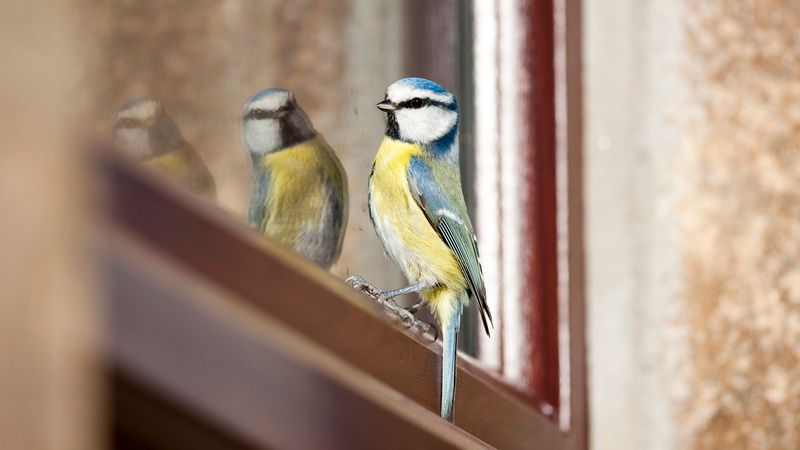
A bird in the house was more than a feathery visitor; it was a chilling omen. Americans believed that a bird’s unexpected entrance signaled impending passing or bad news, turning avian intruders into harbingers of doom.
The superstition added an edge of fear to the flutter of wings inside, making attempts to shoo away the bird both urgent and anxious.
While today’s ornithologists might attribute such behavior to mere curiosity, the superstition lingers as a reminder of life’s fragility. It reflects the human desire to find meaning in unexpected moments, even when they come with a side of feathers. So, if a bird visits your home, perhaps a gentle escort outside will ease your mind.
12. If Your Palm Itches, Money Is Coming—But Only If You Don’t Scratch It
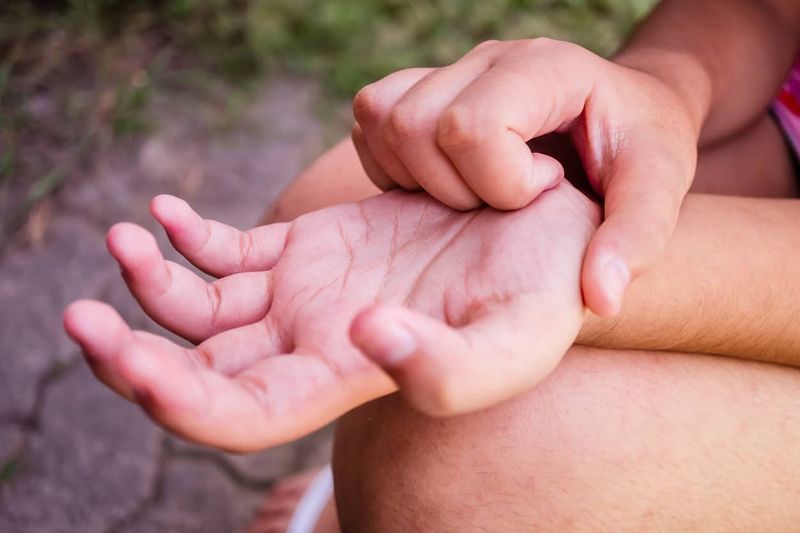
An itchy palm was once a financial forecast, predicting incoming wealth—but only if left unscratched. This superstition added a delightful challenge to resisting the urge, promising prosperity to those with patience.
The belief turned ordinary itchiness into a tantalizing promise, blending bodily sensations with dreams of fortune. For those superstitious enough to heed it, itchy palms became a game of endurance, where refraining meant reaping rewards.
While dermatologists might offer more scientific explanations, this superstition persists as a quirky reminder of hope and anticipation. It taps into the human desire for luck and abundance, offering a whimsical way to dream of financial success. So next time your palm tingles, resist the scratch—it might just lead to unexpected wealth.
13. Whistling at Night Attracts Spirits

Nighttime whistles were more than melodies; they were invitations to spirits. This superstition suggested that whistling after dark could summon ghosts or bad luck, turning a simple tune into a ghostly lure.
The belief added an eerie charm to the night, where each note might beckon unseen listeners. It cautioned against musical expression, perhaps as a way to maintain the night’s silence or respect for the unknown.
For the superstitious, whistling became a dance with danger, a flirtation with the spectral world. It reminded people of the thin line between the living and the ethereal, urging caution after sunset. So, if you must whistle at night, perhaps a softer tune will keep the spirits at bay, and your peace intact.
14. If a Picture Falls Off the Wall by Itself, Something Bad Will Happen

A picture falling off the wall wasn’t just a household mishap; it was a sign from the unseen. This superstition warned of impending misfortune, turning a simple frame’s tumble into a message of doom.
The belief added a layer of suspense to everyday life, where walls held secrets and frames whispered warnings. For those who noticed, it was a call to brace for the unknown, a reminder of life’s unpredictability.
While modern minds might point to loose nails, the superstition persists as a nod to mystery and intuition. It reflects the human need to find meaning in small events, offering a glimpse into the mysterious ways the world speaks. So, if a picture falls, perhaps a gentle realignment of both the frame and your perspective will set things right.
15. Never Pour Salt Directly Into Someone’s Hand

Salt, the humble seasoning, held the power to curse friendships. Pouring it directly into someone’s hand was a breach of social etiquette, believed to invite discord. Instead, placing salt on the table allowed friendships to remain untainted.
This superstition turned table manners into rituals of protection, where even the smallest gestures carried weight. It was a dance of respect and caution, reflecting the importance of harmony in social interactions.
For those who adhered to it, the superstition was a reminder of the power of intention, where salt became a symbol of both flavor and friendship. While modern diners might chuckle at its seriousness, the belief lingers as a quaint nod to thoughtful connections. So, next time you pass the salt, let it rest on the table, ensuring your bond remains as strong as the seasoning itself.
